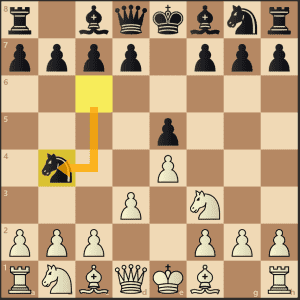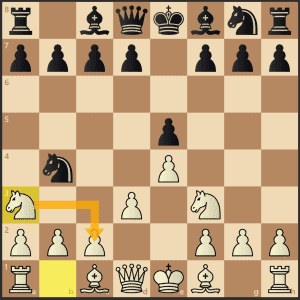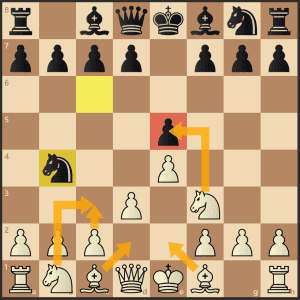This is another really basic tip, and like the previous one, it seems obvious; But if it is on this list of basic tips to raise your rating, it is for a reason.
In my time as a chess teacher I have seen quite a few people who were playing the opening well and start making ineffective moves solely because they wanted to respond to their opponent's moves. In this way they lose valuable time to develop parts, control the center, either save your king, and they focus on "defending" themselves against their rival or annoying them.
Post content:
What do I mean?
At low levels of chess sometimes we sin by not stopping to think about what the opponent is looking for, but there are also cases where the opposite happens, and we sin by giving too much thought to a move by the opponent that does not make much sense. You will learn to differentiate a good play from a bad one as your rating increases, as long as you continue playing games frequently.
To give a very, very basic example: this happened recently between two of my students during their ninth or tenth chess class:

The black player skips all the opening principles (don't do it unless you are absolutely sure it will be a good exception) because he somehow sees a promising attack. What is the white player doing here?
I found this case funny especially because the white player also felt the pressure of being under attack (although he is not), and instead of continuing with the basic principles of the opening that we had seen in class he goes and plays the following:

Na3, to defend the c2 point. What happened? By trying to respond to his opponent's movements, the white player now has a knight very far from the center of the board. Not only has he not followed the basic principles of the opening, but he has played exactly what I told you was not entirely good: moving the knights away from the center of the board.
As soon as the black player has moved, the white player has asked himself the following question: What is my opponent threatening? How do I defend it?
But surely he should have started by asking himself something like: Does my rival really threaten anything? What is your plan? Is it essential that I defend myself against it?
If the white player had thought this way he would have realized that he had a free turn in which he could take advantage of the opening tips that I taught them. Or even if you go further and evaluate the position you would have realized that now your knight can capture the e5 pawn.

All of these moves are promising for White because he either wins a pawn, or develops pieces, or begins to have better influence on the center of the board. Some of these plays even serve two functions at once.
And if; I know that it may seem like a very, very basic example, but if you are below 1000 elo points I would dare to say that these situations occur in your games much more often than you think. Maybe not with examples as clear as this one, but allowing yourself to be badly influenced by your opponent's bad plays is not as strange as one may think.
Because it is important?
It is important that you have clear ideas and always evaluate the position with criteria. If your opponent makes a strange move, you are not obligated to humor him or respond to it. You can continue with your plans, improving the position of your pieces, or annoying your opponent in some other way. Many times when the rival makes an inaccuracy like the one in the example and we allow ourselves to be badly influenced, the only thing we are achieving is giving the rival the opportunity to correct his mistake.
How to avoid it?
Always ask yourself if the opponent's move really creates any threat, or if they have a specific plan. If you have evaluated the position well and you don't think the opponent is going to achieve anything with that move, ignore it. Although sometimes it is difficult, it is not necessary that you respond to every move of your opponent: you can continue with your plans, or developing pieces, or taking your king to a safe position...
Summary
I think it is more common than it seems to allow oneself to be badly influenced by the opponent's movements. Sometimes our eyes only go to the part of the board where the last piece has moved, or we trust too much that the opponent is not going to make mistakes, and this is not the case. You have to know how to evaluate the position well at all times, and stop thinking only about the opponent's last moves.
